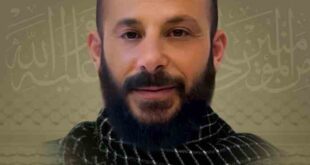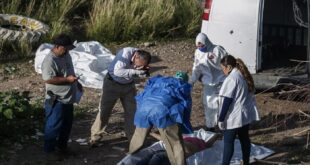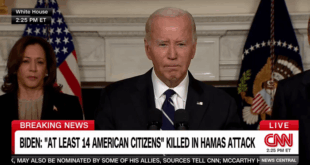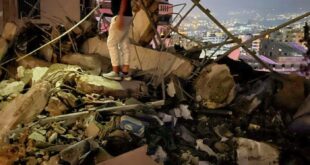Top Hezbollah commander killed in Israeli strike on Beirut – the news sent shockwaves through the region, raising tensions and sparking a flurry of reactions. The targeted strike, a bold move by Israel, marked a significant escalation in the ongoing conflict between the two adversaries.
It also ignited a wave of questions about the future of the conflict, the potential for retaliation, and the wider implications for regional stability.
The strike, which occurred in the heart of Beirut, raised concerns about the potential for further escalation and the possibility of a full-blown conflict. The international community watched closely, with some condemning the attack while others expressed concerns about the growing instability in the region.
Meanwhile, Hezbollah, the powerful Lebanese Shiite group, vowed to avenge the death of its commander, raising the stakes even higher.
The Future of the Conflict
The assassination of a top Hezbollah commander in a targeted Israeli strike in Beirut is a significant event with potentially far-reaching consequences for the future of the conflict between Israel and Hezbollah. The strike has the potential to escalate tensions and lead to a new round of violence, but it could also present an opportunity for a shift in the dynamics of the conflict.
Implications for Regional Security and Stability
The strike raises concerns about regional security and stability, particularly in the context of ongoing tensions between Israel and Iran, Hezbollah’s main patron. The assassination could trigger a chain reaction, leading to further retaliatory attacks and a potential escalation of the conflict.
The impact on regional security is multifaceted:
- Increased Tensions:The strike could exacerbate tensions between Israel and Hezbollah, potentially leading to a new round of violence. This could further destabilize the region, particularly in Lebanon, where Hezbollah holds significant political and military influence.
- Escalation of Conflict:Hezbollah’s response to the strike remains uncertain, but the possibility of retaliatory attacks against Israeli targets cannot be ruled out. This could escalate the conflict and lead to a broader regional confrontation.
- Regional Instability:The assassination could further destabilize the region, particularly in Lebanon, where Hezbollah’s political and military power is significant. The potential for a new round of violence could undermine efforts to achieve political stability in Lebanon and the wider region.
Possible Scenario for Future Negotiations or Peace Efforts
The assassination could also have implications for future negotiations or peace efforts between Israel and Hezbollah. The strike could undermine trust between the two sides, making it more difficult to reach a negotiated settlement. However, the strike could also create an opportunity for a shift in the dynamics of the conflict, potentially leading to a new round of negotiations.
This could be facilitated by:
- Increased Pressure for De-escalation:The international community could increase pressure on both Israel and Hezbollah to de-escalate tensions and engage in dialogue. This could create a conducive environment for negotiations, particularly if the strike leads to a significant escalation of the conflict.
- Shift in Strategic Calculations:The assassination could lead to a reassessment of strategic calculations by both Israel and Hezbollah. The strike could prompt both sides to consider the risks and potential costs of continuing the conflict, potentially creating a more favorable environment for negotiations.
- New Opportunities for Diplomacy:The assassination could create a window of opportunity for international mediators to engage both sides in a renewed diplomatic effort. This could lead to a more constructive dialogue and potentially pave the way for a long-term solution to the conflict.
The Role of the Media
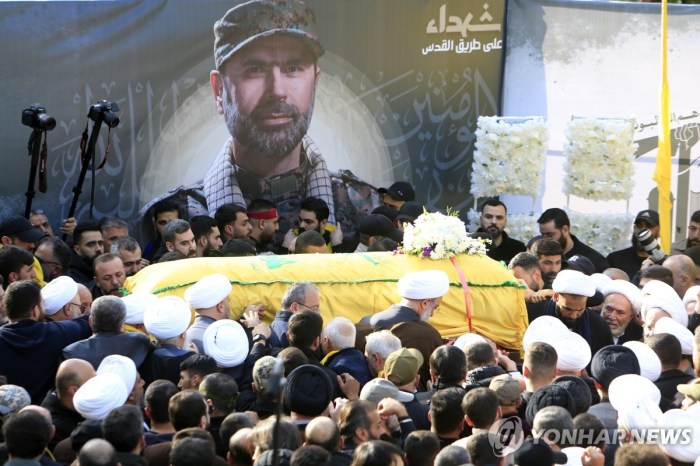
The media plays a crucial role in shaping public understanding and international perceptions of the conflict. Its coverage of the strike and its aftermath has had a significant impact on how the event is perceived by both domestic and international audiences.
Media Coverage and Public Opinion
Media coverage has significantly influenced public opinion on the strike and its implications. The way different media outlets frame the event can influence how people interpret it and what they believe about the conflict. For example, media outlets sympathetic to Hezbollah may portray the strike as an act of aggression by Israel, while outlets sympathetic to Israel may portray it as a necessary response to Hezbollah’s threats.
International Perceptions, Top Hezbollah commander killed in Israeli strike on Beirut
Media coverage also plays a significant role in shaping international perceptions of the conflict. The way the strike is reported by international media outlets can influence how foreign governments and organizations view the situation. For example, if international media outlets focus on the civilian casualties of the strike, it may increase pressure on Israel to de-escalate the conflict.
Browse the implementation of Asian Politics Headlines at 4:25 a.m. GMT in real-world situations to understand its applications.
Framing of the Strike
Different media outlets have framed the strike and its implications in various ways. Some outlets have focused on the strike’s impact on Hezbollah’s military capabilities, while others have emphasized the potential for escalation. Some outlets have also highlighted the strike’s implications for the Lebanese government and its relationship with Israel.
Last Recap
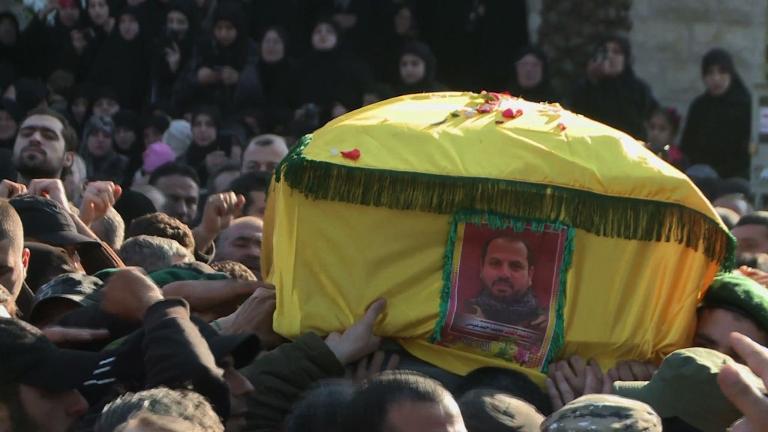
The killing of a top Hezbollah commander in an Israeli strike on Beirut is a pivotal moment in the long-running conflict between Israel and Hezbollah. It has injected a new level of uncertainty into the region, with the potential for both escalation and a shift in the dynamics of the conflict.
The international community is watching closely, seeking to prevent further violence and navigate the complex web of alliances and interests that shape the Middle East. The immediate aftermath of the strike has raised a multitude of questions, and the answers will shape the future of the region for years to come.
Helpful Answers: Top Hezbollah Commander Killed In Israeli Strike On Beirut
What was the target of the Israeli strike?
The Israeli strike targeted a top Hezbollah commander, a key figure in the organization’s military wing.
What was Hezbollah’s response to the strike?
Hezbollah condemned the strike, vowing to avenge the death of its commander. The group also threatened to retaliate against Israel.
How did the international community react to the strike?
The international community expressed a range of reactions to the strike. Some countries condemned the attack, while others expressed concerns about the potential for escalation.
What are the implications of the strike for the future of the conflict between Israel and Hezbollah?
The strike has raised tensions between Israel and Hezbollah, increasing the risk of a full-blown conflict. The implications for the future of the conflict are still unfolding.
 CentralPoint Latest News
CentralPoint Latest News
